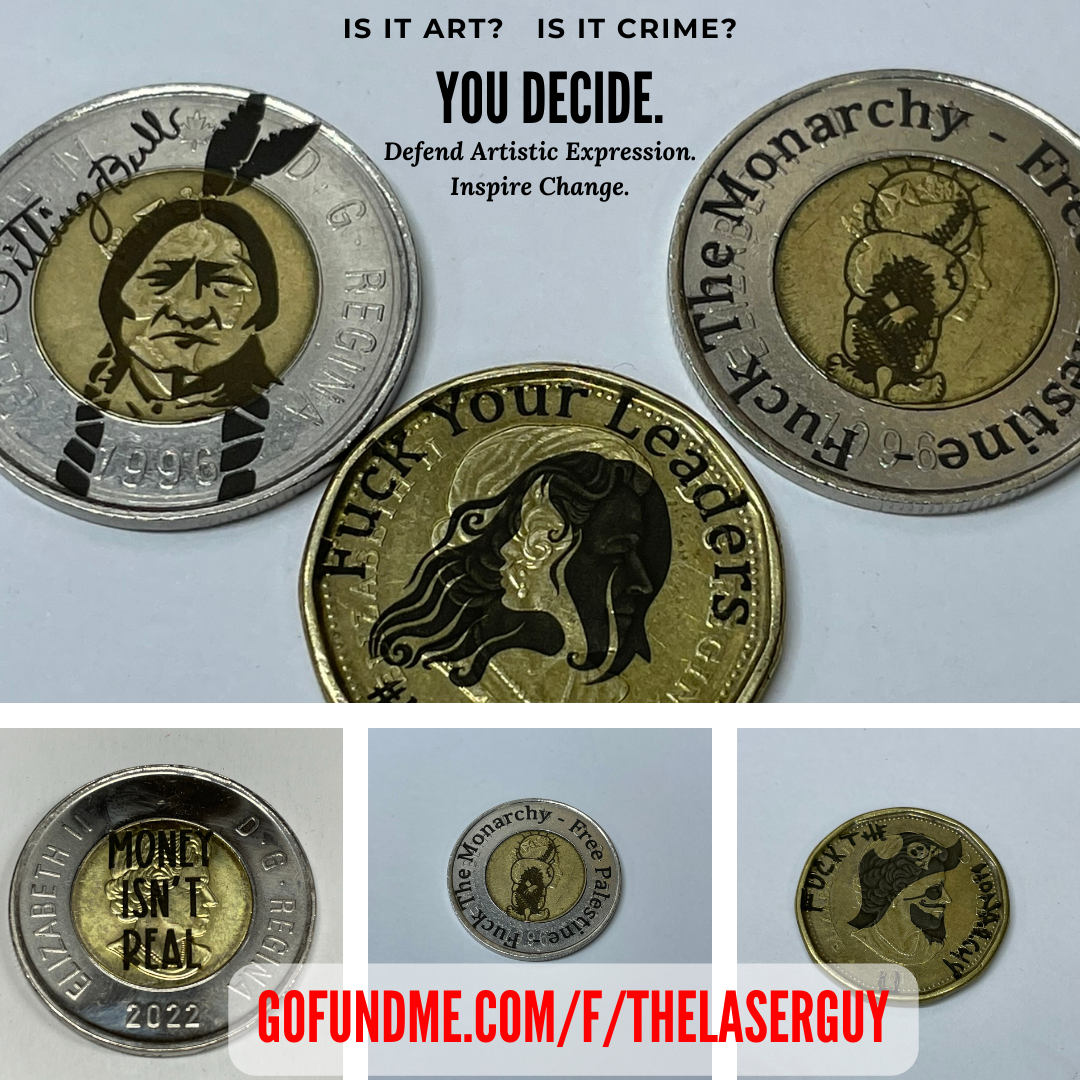
"THELASERGUY" FIGHTS FOR ARTISTIC FREEDOM THROUGH LEGAL BATTLE
May 31, 2023 - Reading time: 4 minutes
FOR IMMEDIATE RELEASE
Fundraising Effort Launched to Uphold Freedom of Speech and Expression
Toronto, Ontario, Canada – May 30, 2023
Social media platforms have transformed the way artists share their work, but for Kal Kurdi, also known as "thelaserguy" on TikTok, this new frontier of artistic expression has led to an unexpected legal battle. Charged with defacing currency, Kurdi argues that his art has been misinterpreted as a crime.
"I was in absolute disbelief," Kurdi recalls of the moment he learned about the charges. "I thought it was the most ludicrous thing I've ever heard." The legal battle has taken a toll on his personal and professional life, causing emotional exhaustion, financial stress, and skepticism about his online followers.
But Kurdi's case is more than an individual struggle. It raises broader questions about artistic freedom, particularly on social media platforms. "If artists are not free to create and share their work without fear of legal action, it could have a chilling effect on creative expression," he warns. He fears that a guilty verdict could further silence marginalized voices and those who challenge the status quo.
Yet, there are those who argue that artistic freedom should have its limits, especially when it involves actions that could be interpreted as defacing national symbols or breaking the law. They believe that artists should be aware of and respect these boundaries, even as they push the envelope with their work.
In response to these critics, Kurdi raises a compelling question: "What's the difference between what I'm doing, and what others have done and are doing? Why is it of the dozens in Canada who use coins to make art, I'm the one who stands accused and faces trial?" He points out that artists have been using coins to create jewelry and intricate carvings for years, and their work has been recognized as art and even featured in museums. Yet, for reasons that remain unclear, Kurdi finds himself in the crosshairs of the legal system.
The journey has been fraught with challenges, from the uncertainty of the legal process to the impact on his family. "Staying positive, it gets heavy on the soul," he admits. Yet, he remains committed to his cause, driven by the desire to create a better world for his children.
Kurdi has received mixed support from his community and followers. While some have rallied behind him, others have been noticeably absent. He has also struggled to raise funds for his legal defense, a situation that he attributes to the algorithmic whims of social media platforms.
Despite the ongoing legal battle, Kurdi remains optimistic about the future of his work. "This legal battle has made me more cautious about the work I share online. However, it has also made me more aware of how important it is to fight for artistic freedom," he says.
A win in this case would mean more than just personal vindication. It would set a positive precedent for future cases involving artistic expression online, protecting the rights of artists to create and share their work freely.
He urges the public to support his cause by sharing his story and donating to his legal defense fund. He also hopes that his experience will raise awareness about the importance of protecting artistic freedom.
Kurdi's experience has made him more aware of the power and influence of social media in society. "It has also made me more cautious and thoughtful about the work I share online," he admits. Despite the challenges, he remains resilient, drawing strength from his commitment to his values and beliefs.
Once the legal battle is over, he plans to continue his fight against injustice and create resources for artists facing similar situations. He also plans to continue making art that explores challenging and controversial topics.
His message to those in a position to change the laws and regulations that have led to his current situation is clear: "Prioritize the protection of artistic freedom and free speech rights of artists. These freedoms are essential to a vibrant and healthy democracy."